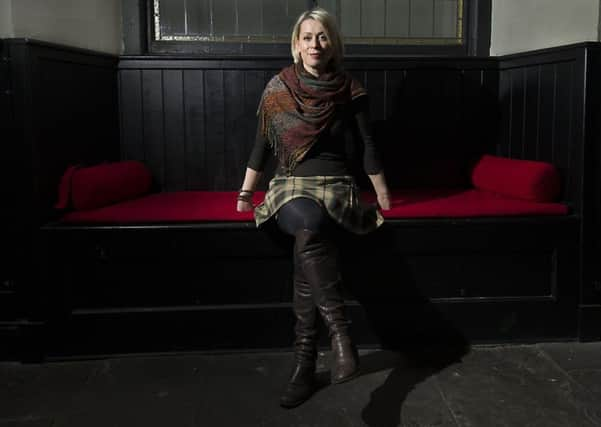Scottish director Cora Bissett warns: Theatres are too afraid to give women work


Cora Bissett, the award-winning creator of the hit stage shows Road Kill, Glasgow Girls and What Girls Are Made Of, called for theatres to be less afraid of hiring women.
She has blamed a “history of white middle-class males running all the institutions” for a legacy of a dearth of opportunities and called for action to fast-track rising talent.
Advertisement
Hide AdSpeaking on BBC Radio Scotland, Bissett said she was forced to set up her own theatre company a decade ago in despair at the lack of diversity in Scottish theatre.
In an interview with singer-songwriter Ricky Ross, Bissett recalled setting up her own theatre company in frustration at being offered bit-part roles, including as a prostitute in Taggart, and the lack of strong female characters on stage.
Bissett, now an associate director with the National Theatre of Scotland, said a “real concert effort on all fronts” was needed to ensure proper equality in the industry.
Bissett originally made her name in the music industry, before moving into acting and directing.
She said: “When I started out directing, it was a mixture of following my heart and seeing a very apparent need. The notion that I could maybe direct my own work came from a very frustrated place of being a jobbing actor. I was going: ‘Really? Is this it? This isn’t what I set out to do.’ I was seeing so many stories that I wanted to see told on stage.
“I thought: ‘OK, if no-one’s doing it and no-one’s given me that platform I’m just going to have to make that platform.
Advertisement
Hide Ad“I very deliberately set up my company to put really powerful female roles on stage – complex, brilliant characters – but also to look at stories of diversity in Scotland and to try to create that platform.”
Bissett#s first major success as a director was Road Kill, a play exploring the “hidden world” of sex trafficking in Scotland, which won every major theatre award at the Edinbugrh Festival Fringe in 2010 and went on to win an Olivier Award.
Advertisement
Hide AdShe went on to create Glasgow Girls, a musical about the campaign by seven female school friends against the treatment of asylum seekers in the city.
Her most recent show, What Girls Are Made Of, which she wrote after rediscovering her own teenage diaries, also saw her reflect on becoming a mother and bringing up a young daughter in the current era. The show, which was launched at the Fringe in 2018, has just been on tour in Australia.
Bissett: “I’ve been amazed by the amount of people who desperately wanted to come up and chat to me after the show and really share their most personal stories.
It was just cathartic for them - they wanted to tell me what happened to them. I felt that there can’t have been such an outlet for them before because they had such a need here to talk about it.
“I’ve had some brilliant women help me, but there is certainly still a disparity in opportunities. If our kids are grown up and are not seeing women in a diversity of roles what is that seeing on a really basic basic level?
“Because we have had a history of a certain demographic of white middle class males running all the institutions and all the buildings and holding those positions of power a lot of the skill-sets needed to step up haven’t had a chance to flourish.
Advertisement
Hide Ad“There’s a whole generation of female theatre directors who are not getting an opportunity to direct for bigger stages. “No-one’s going to take the gamble on them because there’s just not been the opportunities for them to develop and learn. It goes for writers as well, to go from a one-person show and then try to write for a cast of nine, or transfer to film or TV.
“People are always frightened of taking the gamble, but if you don’t give people opportunities how are any of us ever going to learn?
Advertisement
Hide Ad“There has to be more fearlessness and more support. There needs to be a real concerted effort on all fronts, to create support, to allow people not to fail but to learn on the job.”
She has spoken out three years after independent research found that women were employed in 39 per cent of creative roles in publicly-funded theatres in Scotland, and had just 38 per cent of artistic leadership roles. Women were cast in 46 per cent of 811 roles over the course of a year, but only 39 per cent of the plays were written by women.